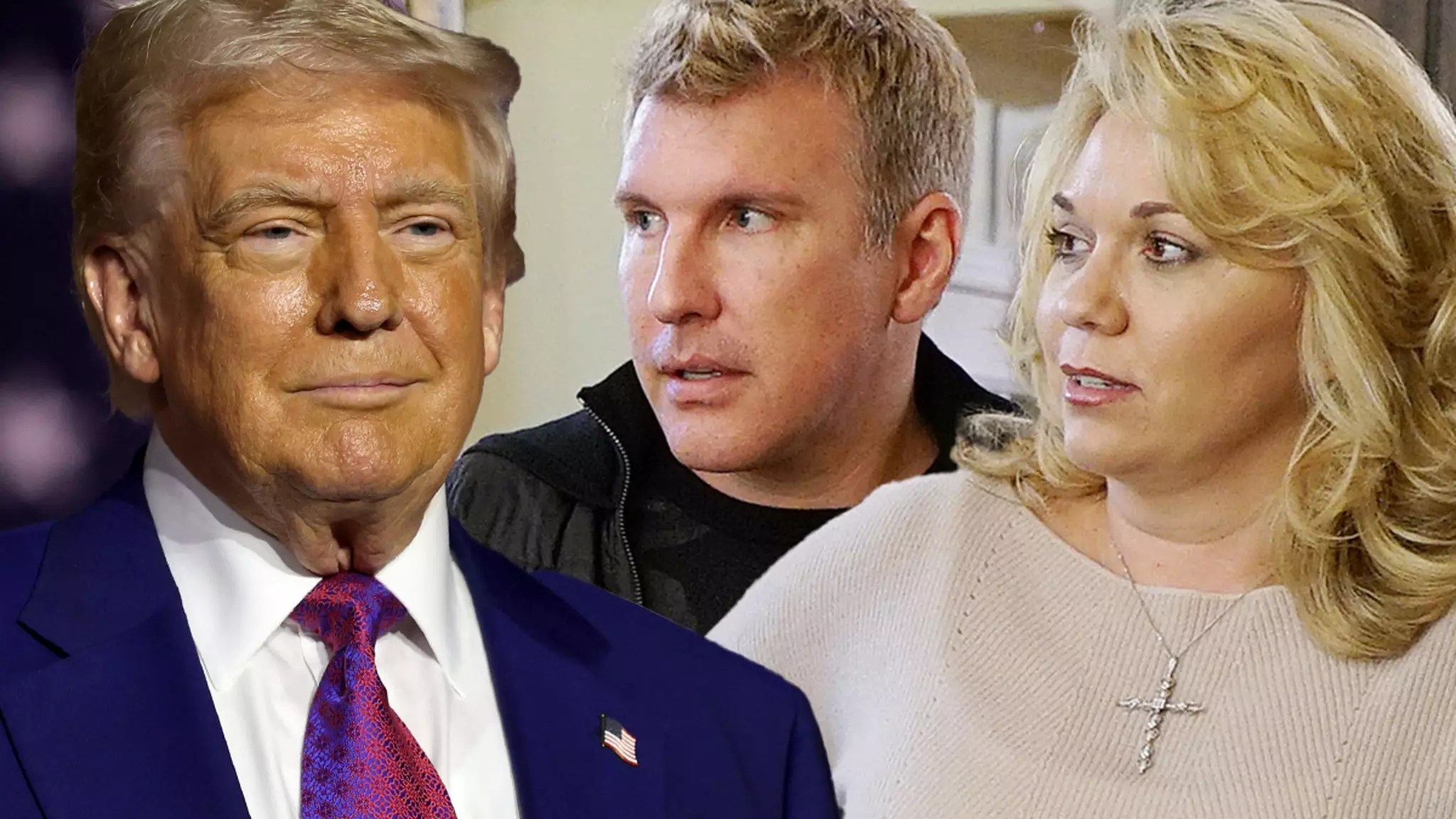In a twist that has stirred public discourse about justice and privilege, Todd and Julie Chrisley are not just out from behind bars, but are poised to regain substantial financial losses as a result of their recent presidential pardon. President Trump’s intervention, framed as a correction of what he perceived to be an unjust trial, has reignited debate around the intersection of celebrity, politics, and the legal system. The Chrisleys were initially sentenced to serve more than a combined 19 years for serious charges including bank fraud and tax evasion, obligations made even heavier by the requirement to repay over $17 million in restitution. Yet, thanks to the presidential pardon, this financial penalty might just be erased.
Analyzing the Implications of the Pardon
The implications of a presidential pardon are profound. Under federal law, it automatically nullifies debts tied to cases pardoned, essentially allowing the Chrisleys to wipe their slate clean of any outstanding restitution. This raises ethical questions about fairness and accountability in the justice system. In a society where many individuals grapple with the consequences of their actions without the benefit of such high-profile reprieves, the acknowledgement of the Chrisleys as victims of an alleged political witch hunt critiques the very essence of equality before the law. Their lawyer, Alex Little, staunchly defends their case as a targeted effort against conservative values, a narrative that cannot help but further deepen the divisions in public opinion regarding justice administration.
The Role of Public Perception and Media Influence
As figures in reality television, the Chrisleys embody the complexities of media influence on public perception of guilt and innocence. Their narrative has been shaped not solely by court hearings but also by a broader cultural lens, fostering a discourse where celebrity status intertwines with perceived victimization. Savannah Chrisley’s passionate defense of her parents during the Republican National Convention highlights not just family loyalty but also the power of media platforms in shaping political and social narratives. Her accusations toward the prosecutors and the judicial system echo larger concerns that justice may sometimes be influenced by political affiliations and celebrity status rather than objective truth.
A Law That Raises the Bar on Accountability
The legislative backdrop to this situation begs for scrutiny. The law allows for restitution to be refunded if it has been paid when pardoned, a discourse missing in the outrage and discussion surrounding the Chrisleys’ freedom. This presents a complex scenario; even if the Chrisleys re-obtain funds they initially reimbursed as restitution, a cycle of repayment may ensue potentially revitalizing the financial burdens placed on victims. The question of justice becomes an echoing theme, prompting discussions about the fairness of the legal system and the relationship it shares with those in significant political authority.
In the end, the pardon of Todd and Julie Chrisley does not only represent an easing of judicial consequences but rather serves as a reflecting pool for America’s ongoing discourse on justice. Through the lens of celebrity, politics, and legality, their case continues to mesmerize and provoke, reaffirming the complex layers of what justice truly means in the landscape of modern America.


Leave a Reply